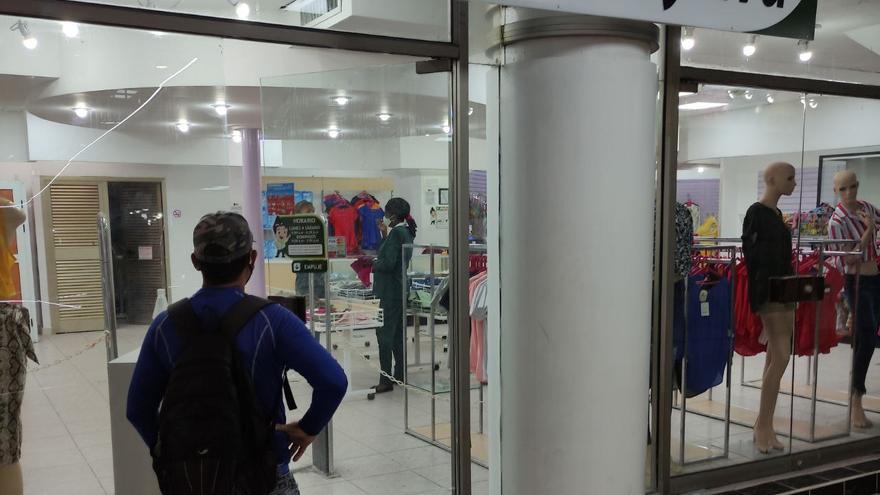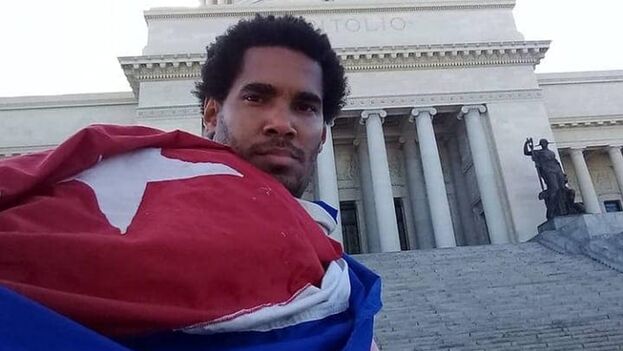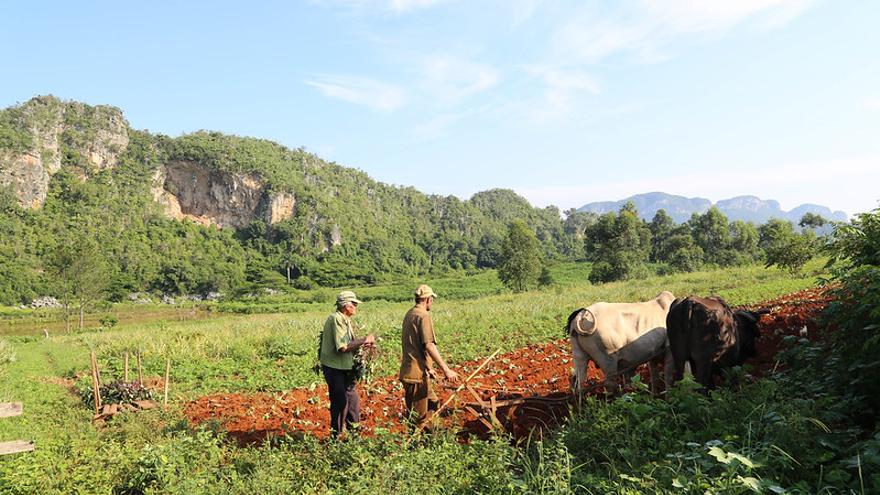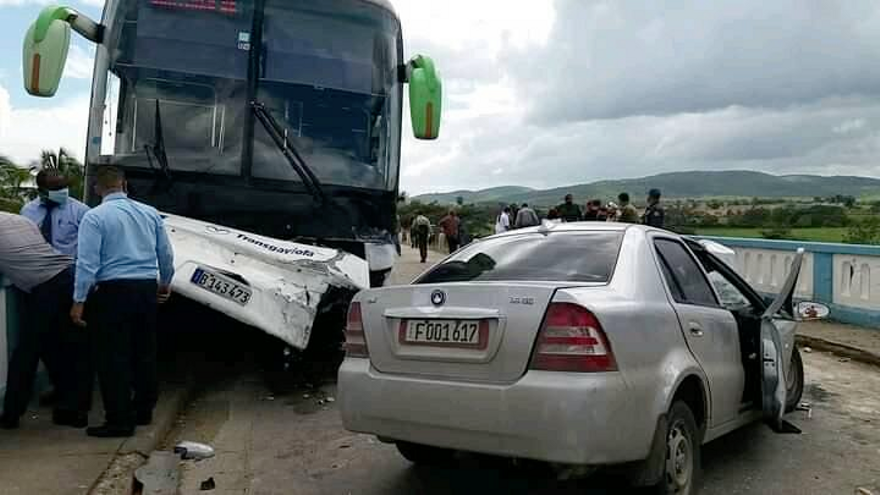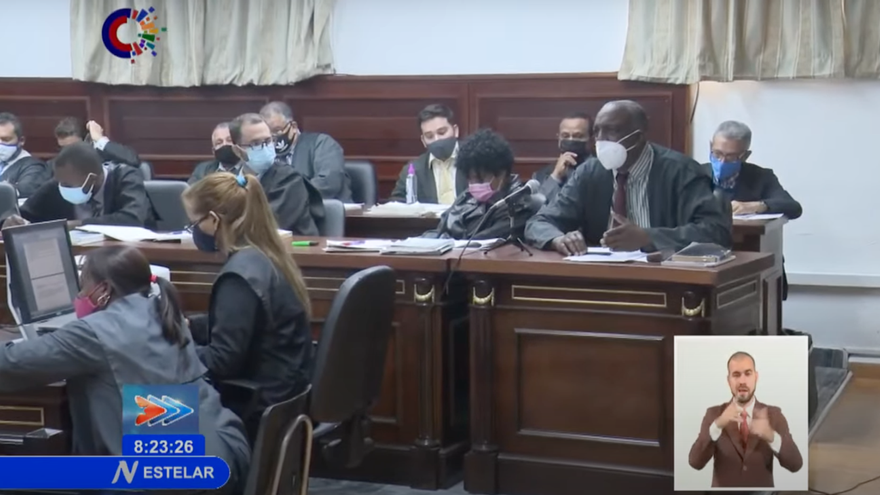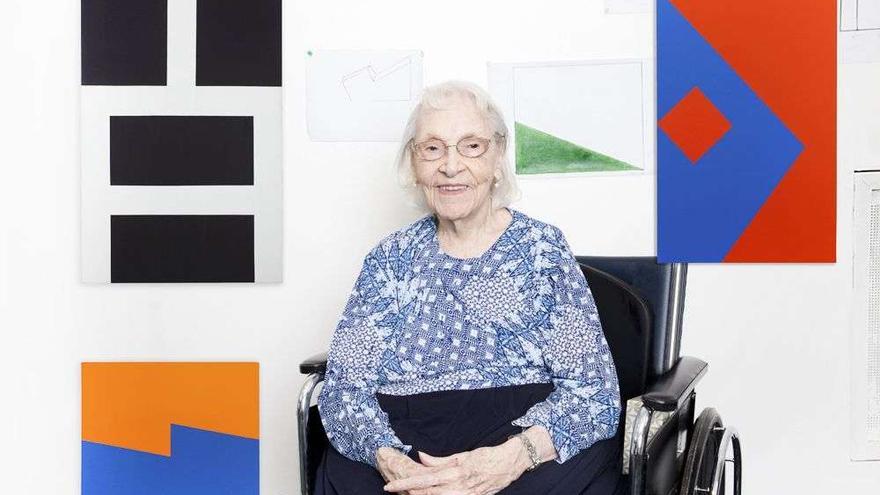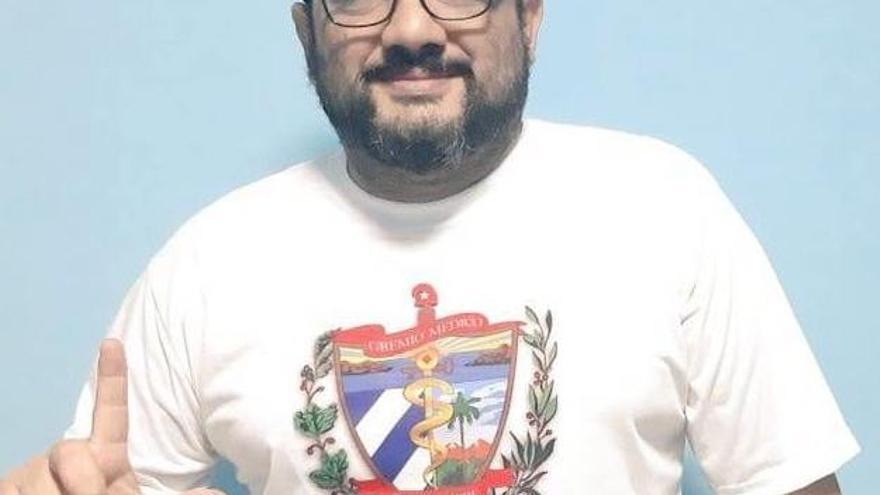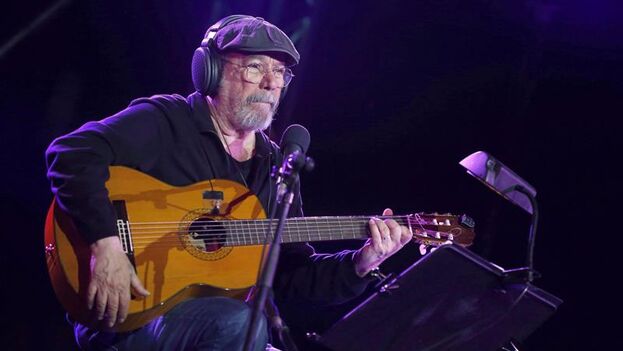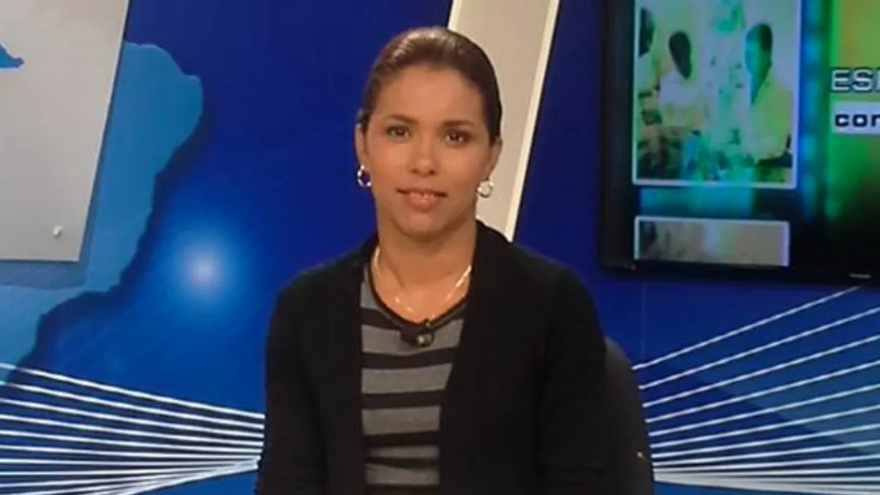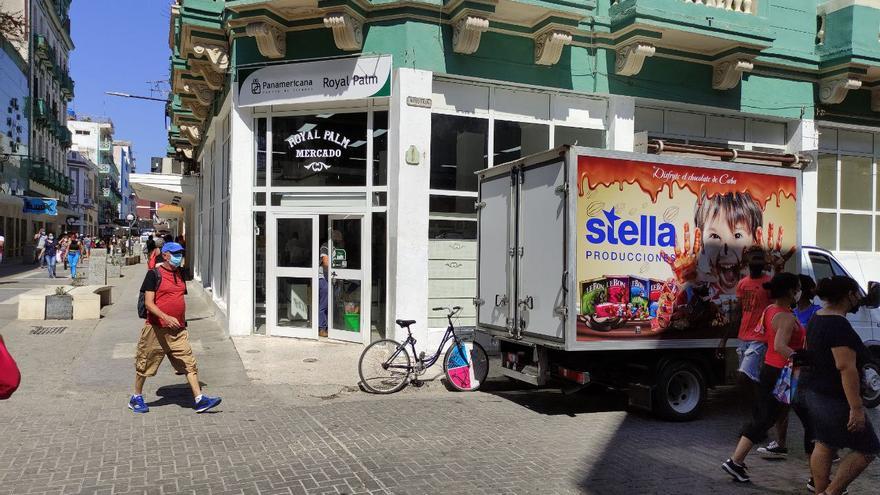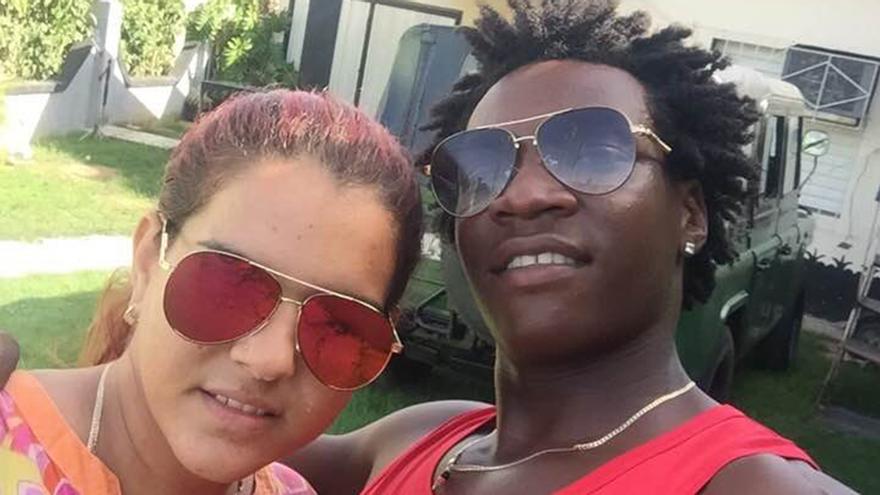“We did not have the ability to maintain supplies to the retail markets [that take payment] in national currency because we have had several suppliers that had withheld sales and replenishments due to [Cuba’s unpaid] debts,” explained Gil Fernández. According to his version, expanding the products in the MLC stores allowed many of the suppliers to agree to reactivate their contracts knowing that they could now charge for goods sold to the Cuba state in foreign currency.
“We didn’t have the alternative of selling in both MLC and pesos. You sell in MLC or you don’t sell, because debt is paid or commercial credit is only guaranteed with foreign currency,” he added. At that time, the pandemic arrived and the Government saw the need, he alleges, to guarantee remittances so that production could continue. Although he did not give any example, the minister affirmed that many companies that sell in MLC have not closed thanks to the fact that they sell their products in those stores and obtain profits with which they can offer merchandise in pesos.
Gil Fernández said that 23% of the sales of the economic plan for 2022 are in MLC and the rest in pesos, so the currency is still insufficient. Last year 300 million dollars were achieved and it is necessary that this amount be maintained since, in the absence of tourism, it would have been impossible to cover the social spending that, as he described in the program, dedicated to the economy in an integral way, has been very high and, according to their estimates, is responsible for an increase of 10 points in the deficit. continue reading
“We lost 13% of GDP in a short period of time, more than three billion dollars, and we have not given up social spending. (…) We could have a deficit of 3% of GDP, but this is a socialist country,” he defended.
The minister tried to calm the spirits of the population, since many supporters of the regime are really upset with the multiplication of foreign currency stores. “We understand the genuine concern of revolutionary people, committed, who have opinions, who consider that it is not totally fair. We once again ask our people for understanding,” he said, but did not hide the existing dependence on foreign currency.
“Right now, that measure is a lifeline, a measure we need to capture that foreign currency, develop our industry as much as we can, maintain a level of employment in the country that we could lose, and use those profits to maintain a level of offerings in pesos, starting with the regulated [rationed] family basket and fuel.”
The minister gave multiple examples of products and services that could not have been financed, resorting even to the most basic ones – some of which, like rice, have been frequently lacking – were it not for these businesses that cause so much disgust and He promised that 2022 will advance “towards the recovery of the purchasing power of the national currency.”
Gil Fernández, who had begun his intervention in the program by maintaining that he is not seeking to justify the errors of the Government when he mentions the embargo, resorted to him again at this point. “Why, as soon as it was decided to open the MLC stores, did they cut remittances? Because they know that this measure helps the economy. If it were not so, they would not have done everything possible to cut them under the absurd argument that this money would be It is stolen by the Cuban military to repress the Cuban people and sustain Maduro’s dictatorship in Venezuela. Not even those who say so believe that.”
The minister rejected the Army’s “attacks on the business system” and accused Washington of leaving Havana without options every time it finds an alternative. “It is a necessary measure and that is why the enemy attacks it,” he said. Gil Fernández wondered why the US “does not allow dollars to be deposited in cash” and defended that it would have been much better for Cubans to have the currency in an account and have a card with which to purchase products, something that was very limited when companies that handle remittances were banned from doing business*.
The minister did not mention, although he was not asked on Cuban Television, that there is a way to dismantle the effects of the measure by removing the military* from the equation, although this week the existence of Orbit SA, an opaque company that has received the license to deal with these matters from now on.
Gil Fernández also spoke out against “distorted” information that tries to manipulate the population, such as saying that toys and powdered milk are sold by the Government in MLC. “It is not like that. The objective of the MLC stores is not to collect foreign exchange at all costs, but in the scenario we are in, there is no other alternative,” he said.
In any case, the minister painted a picture, true or not, that speaks of improvements for this year. According to his explanations, this year there could be a GDP growth of 4%; this January 64,000 more tourists arrived than the same month of the previous year; and 30,000 more tons of agricultural products were produced.
He also spoke about the growth of employment, the renewed perspectives thanks to the approval of MSMEs [small businesses] and the modernization of state-owned companies, although it remains to be seen when the levels previous to the pandemic will be reached, which in no case could be said to have been good times.
The minister also dedicated an extensive section to talk about inflation, which he attributed fundamentally to the increase in the cost of imported products – he gave the example of the price of rice, which has increased by 200 pesos since the Tarea Ordenamiento** [Ordering Task] was designed – and the freight prices, which have doubled and tripled. For this reason, he concluded – not to mention other factors – it is vitally important to increase national production.
Gil Fernández, who had already upset public opinion with last Tuesday’s statements, did not precisely manage to placate the indignation since it did not sit very well that, in the final stretch, he tried to show his empathy in such a clumsy way that he has just made things worse.
“We always think like ordinary Cubans. No one here fell by parachute; we have all ridden a bus or bicycle and stood in line. We were born with the Revolution, we spent the Special Period here, we are ordinary Cubans,” he said.
Difficult, after that, to achieve the final demand with which the program closed: “We ask for trust from our people, because we are the continuation of this just revolutionary work.”
Translator’s notes:
*As detailed in the linked article, in 2020 the “United States government will prohibit remittances to Cuba that are sent through companies controlled by the military…Most of the money sent to the island goes through official mechanisms, and 51.3% of the companies that offer financial services in Cuba have contracts with Fincimex, the company managed by the military.”
**Tarea ordenamiento = the [so-called] ‘Ordering Task’ which is a collection of measures that includes eliminating the Cuban Convertible Peso (CUC), leaving the Cuban peso as the only national currency, raising prices, raising salaries (but not as much as prices), opening stores that take payment only in hard currency which must be in the form of specially issued pre-paid debit cards, and others.
____________
COLLABORATE WITH OUR WORK: The 14ymedio team is committed to practicing serious journalism that reflects Cuba’s reality in all its depth. Thank you for joining us on this long journey. We invite you to continue supporting us by becoming a member of 14ymedio now. Together we can continue transforming journalism in Cuba.
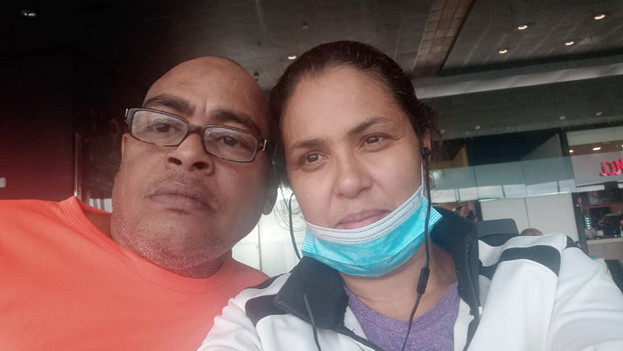
![]() 14ymedio, Yoani Sanchez, Havana, 16 February 2022 — The same day that the activist Anamely Ramos was prevented from boarding a plane to Cuba, the journalist Yailén Insúa Alarcón celebrated that a judge ruled in her favor not to be returned from Bogotá to Havana. Both women are part of a migratory drama, the arbitrariness of a power that, as punishment, both confines within the national borders and expels from the Island.
14ymedio, Yoani Sanchez, Havana, 16 February 2022 — The same day that the activist Anamely Ramos was prevented from boarding a plane to Cuba, the journalist Yailén Insúa Alarcón celebrated that a judge ruled in her favor not to be returned from Bogotá to Havana. Both women are part of a migratory drama, the arbitrariness of a power that, as punishment, both confines within the national borders and expels from the Island.
